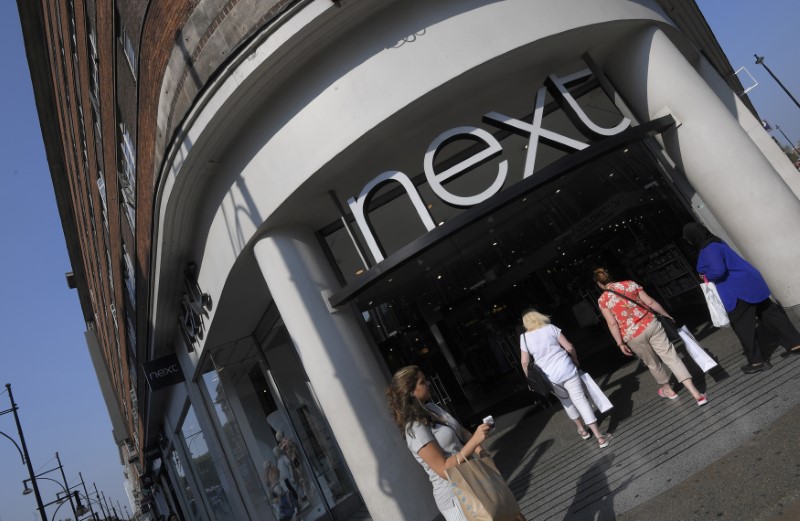By David Milliken
LONDON, (Reuters) - Inflation-squeezed British shoppers cut back on almost everything other than food in the last three months of 2017, leading to the biggest fall in non-grocery spending since 2009, industry figures showed on Tuesday.
British inflation rose to its highest in nearly six years in November at 3.1 percent, largely as a result of the pound's fall after June 2016's Brexit vote, and many consumer-facing businesses have been coming under increased pressure.
The British Retail Consortium, which represents large chains, said overall spending in the last three months of 2017 rose by a sluggish 1.1 percent, compared with an average annual growth rate of 1.7 percent for 2017 as a whole.
"Growth in spending was in line with the average for the year. However, the divergence between growth in sales of food and non-food has never been so stark," BRC chief executive Helen Dickinson said.
Non-food sales fell by 1.4 percent year-on-year in the fourth quarter, the biggest drop since March 2009, while food sales grew by 4.2 percent, the biggest jump since June.
Visa said on Monday that a broader measure of consumer spending fell in December for the first time since 2012.
The BRC said clothing sales did better last month than a year earlier, helped by colder-than-normal weather, while jewelry and toys underperformed compared with the year before.
This partly mirrors trading statements from major retailers. Next (L:NXT), the country's biggest clothing store, and discount food retailer Aldi UK reported strong sales, but department store Debenhams (L:DEB) cut profit forecasts.
British retail sales data has become harder to interpret in the past couple of years due to signs that some spending may be shifting earlier in the festive period to take advantage of Black Friday discounts in late November.
Britain's biggest credit card provider, Barclaycard (L:BARC), said consumer spending between Nov. 19 and Dec. 23 was 4.0 percent higher than a year earlier, the sharpest rise in eight months. This period covered Black Friday, and Barclaycard also includes spending at places like hotels, pubs and restaurants, which is growing much faster than retail spending.

By contrast, the BRC said retail spending in the Nov. 26-Dec. 30 period was up just 1.4 percent on a year earlier, and only rose by 0.6 percent when changes in shop floor space are adjusted for.
(